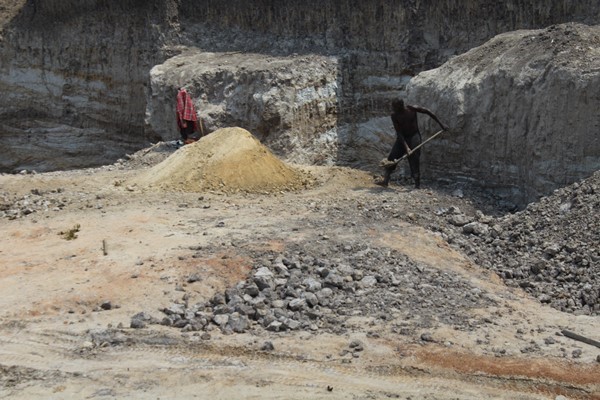Every hustler should ideally yearn for protection from the government for his or her life and property. This, however, is not the case with sand miners in Ndeija Sub County, Rwampara District. They don’t report accidents or offences committed against them, and neither do they seek help from their local leaders. They simply bury their troubles in dead silence and get on with everyday life.
Sand mining is seen as one of the few activities that have improved people’s livelihoods in Rwampara. Miners use hand hoes, spades and torx screws to extract hard sand which they later soften with water. Sometimes they dig too deep and expose themselves to injuries and death when the soil overhead falls on them.
Eldad Ndyasime, the area Councilor where the activities are taking place told The Sunrise that sand mining in the area dates back ages and many accidents have happened there.
“Many people have been crippled and others have lost their lives. But you will not see anyone coming out to report,” he said. “In the last two years I have heard of four cases of death and two people have been left crippled from the uncountable accidents that occur in the different mining pits.”
Ndyasime told the sunrise that much as the miners are not registered, the government is aware that such activities are taking place in the region.
He said that the sand miners are not seeking help because they are afraid of being taxed. One heap of sand costs between UGX 25,000 and 30000 which they share among themselves.
Shafic Ahumuza, 28, has been mining sand here for two years. He joined Nyindo cell after failing to make ends meet in Mbarara town as hawker and Kampala as a porter. Ahumuza narrated that he could not stand the feeling of becoming a failure in life so he asked his father to give him access to his land.
“I started off as hawker and things failed to turn out as I had expected. I went to Kampala and helped on building sites. However, that did not get me the money I expected. I felt I was a failure. I decided to come here. I asked my father to allow me use the land and here I am,” he said.
Asked how they get to know if sand exists in a location, Ahumuza said that one of the techniques they use is to observe the growth rate crops.
“For example if you plant eucalyptus trees and see that their growth is poor it means there is not enough water they can get from the soil. There you know you can find sand,” he said.
They go through hardship to extract the sand but when it is out on the surface, one of the challenges they face is theft.
“You can leave the mine after collecting a huge heap of sand ready to be taken the next day. Unfortunately, some people come in during the night and take it all,” he said.
Ahumuza claimed his mine was safe. “We haven’t registered any accidents. It is our neighbors on the other side who have become crippled because of their poor mining skills,” he said. Asked whether any of them has ever reported to their local leaders, he said “No.”
Ahumuza said that they resolve disputes by themselves because they don’t have licenses, and would therefore not want to attract the attention of their leaders.








